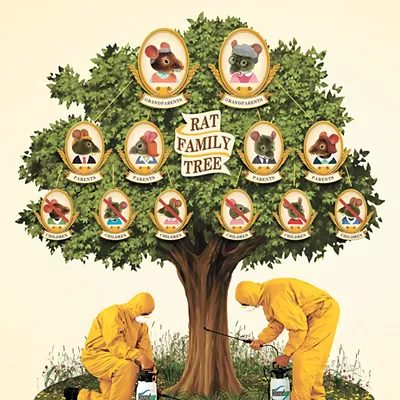Christine Quintasket came into this world, and left it, in her self-imposed role as a diplomat.
The Colville woman, who published two books under the pen name "Mourning Dove," was born in a canoe crossing the Kootenai River from North Idaho into Washington in 1888, according to family lore.
"I really like the symbolism that she was navigating the plateau right from the moment she was born," says Laurie Arnold, director of Native American Studies at Gonzaga University, who recently published an article on the Colville woman's influence.
For much of her life, Quintasket traveled throughout the Columbia Plateau, collecting stories of Colville and Okanogan people that she would eventually compile into a book. As the first Native American woman to publish a novel, Quintasket felt it was her role to preserve Native culture for younger generations, as well as inform those, typically white people, unfamiliar with it.
As a bridge between two cultures, the story goes, Quintasket's life came to an end in 1936. She was staying with a non-Indian couple, who repeatedly asked her to show them her "spirit power" — a private part of one's personality that is to be honored and protected.
Finally, Arnold says, Quintasket relented, in part because of her desire to facilitate understanding of tribal culture. Soon after, she became ill and never recovered. In 1988, a Colville elder said that her choice cost her her life.
But perhaps more significant for Arnold, who is an enrolled member of the Sinixt Band of the Colville Confederated Tribes, are the details in between, and how they've been interpreted by her peers.
"Scholars for a long time were hung up on this notion about [Quintasket] that framed her as suffering because of her biculturality," Arnold says. "But that characterization is such an oversimplification."
In her article published recently in Montana: The Magazine of Western History, Arnold aims to give a more complete picture of Quintasket as an activist and a public intellectual.
"She was doing work at the time that not many people were doing — men or women," Arnold says.














